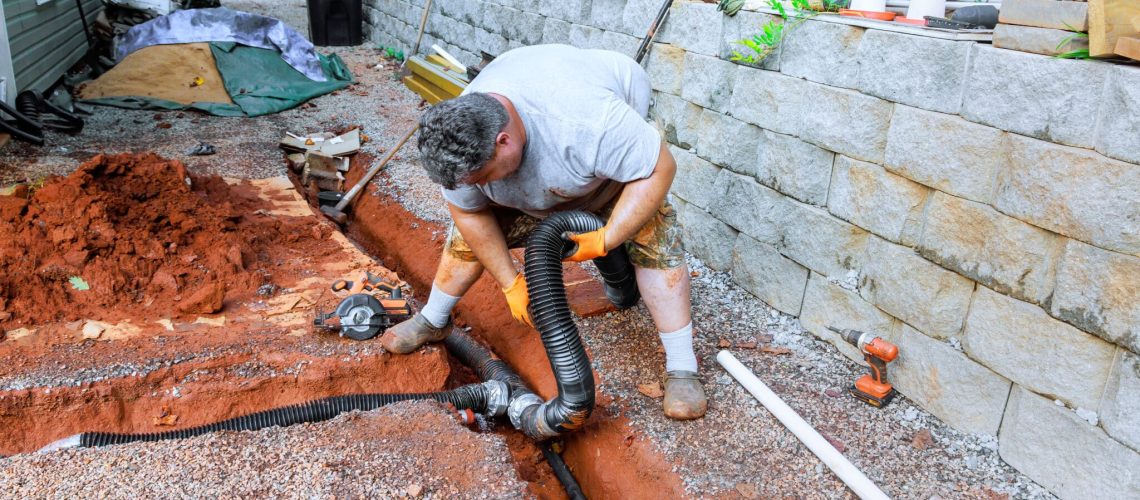If you care about your home’s structural stability and worth, you must take special care of its foundation. Your home’s stability, security, and resistance to environmental hazards depend on a solid, well-maintained foundation. For the sake of your home’s foundation and general upkeep, here are a few essential maintenance ideas.
Ensure Proper Drainage
The most important thing is that there must be good drainage. When it comes to potential dangers to a house’s base, water ranks high. Soil expansion and contraction caused by an excess of moisture near your foundation might result in fractures and other structural problems. Keep your downspouts and gutters clear and in good repair. To divert water away from the house’s foundation, downspouts should be five to ten feet long. To further improve water management on your property, you might want to think about putting in a drainage system, such as a sump pump or French drains.
Keep Soil Moisture Levels Consistent
Second, the soil around your foundation must have constant moisture levels. Uneven foundation settlement can occur if the soil is excessively dry and shrinks, leaving gaps. On the other hand, foundation cracks can form when soil is too damp and expands. In order to keep the soil surrounding your home consistently moist, use a soaker hose to irrigate it during dry seasons. Be careful not to water it too much, too, as that might have the same negative effect as not watering it enough.
Inspect the Foundation Regularly
Another important thing to do is to check the foundation of your house regularly. Keep an eye out for holes in the ceiling, walls, and flooring, particularly around the doors and windows. Hairline cracks are common and usually don’t mean anything major, but bigger cracks, especially ones wider than 1/8 inch, might mean major problems that need expert help. Keep an eye out for sloping floors, cracks in the brickwork, stuck or improperly opening and closing windows and doors, and other indications of foundation difficulties.
Understand How Landscaping Affects the Stability of Foundations
Foundation upkeep is also greatly impacted by landscaping. The root systems of trees and big plants, when placed too near to a house, can erode the foundation. Roots have the potential to cause settling and fractures in your home’s foundation by sucking moisture out of the soil. Large plants should be spaced at least fifteen to twenty feet from your home, and you may want to think about putting up root barriers to stop them from getting too close to your foundation. To prevent water from pooling adjacent to your home’s foundation, the grading surrounding it should also slope away from it.
Install A Leak Detection System
One more thing you can do to keep your foundation safe is to fix plumbing problems as soon as they happen. Soil erosion and foundation issues can result from leaking pipes, particularly those located beneath your property. Check for leaks in your plumbing regularly and fix any problems you find right away. A leak monitoring system can keep an eye out for little leaks that might cause big problems if left unchecked.
Maintain Optimal Indoor Humidity Conditions
Keeping a comfortable indoor humidity level is another important point to remember. Mold and wood rot, both caused by excessive interior humidity, can damage your home’s structural components and lead to foundation difficulties. To keep the humidity just right and prevent foundation damage, install dehumidifiers in damp locations like basements and crawl spaces.
Keeping Frost Heave At Bay
It is crucial to avoid frost heave, which happens when the earth expands due to freezing and pushes the foundation higher, in areas where freezing temperatures are common. This problem can be reduced by insulating the soil around the foundation. If you happen to reside in a region that has particularly harsh winters, it could be wise to construct frost-proof footings and wrap the foundation with foam insulation boards or blankets.
Take Care Of The Exterior Of Your Home
Preserving the foundation of your home also requires regular exterior maintenance. Because foundation damage can occur from water seeping in via outside gaps, it is important to paint and seal all exterior walls. Another important thing to check is the quality of your roof. If it’s broken, water might seep in and cause problems with your foundation. Also, make sure to check your chimney for any signs of tilting or cracks as these might all be signs of foundation issues.
Arrange Professional Inspection
Finally, if you want some piece of mind and to make sure any foundation problems are caught early, it’s a good idea to have a professional evaluate your home regularly. In order to determine what, if any, foundation repairs or upkeep are required, a structural engineer or foundation specialist can inspect your foundation. These experts can see issues that the average person would miss and provide you with sound advice on how to fix them.
Final Thoughts On Thorough Foundation Upkeep
If you take care of your home as recommended, you may prolong the life of your foundation and make sure your house is secure for many more years. A thorough approach to foundation maintenance includes regular inspections, correct drainage, moisture control, thorough landscaping, rapid plumbing repairs, management of humidity, and professional evaluations. You can keep your home’s value and structural integrity high and save money on repairs by following the aforementioned recommendations!


